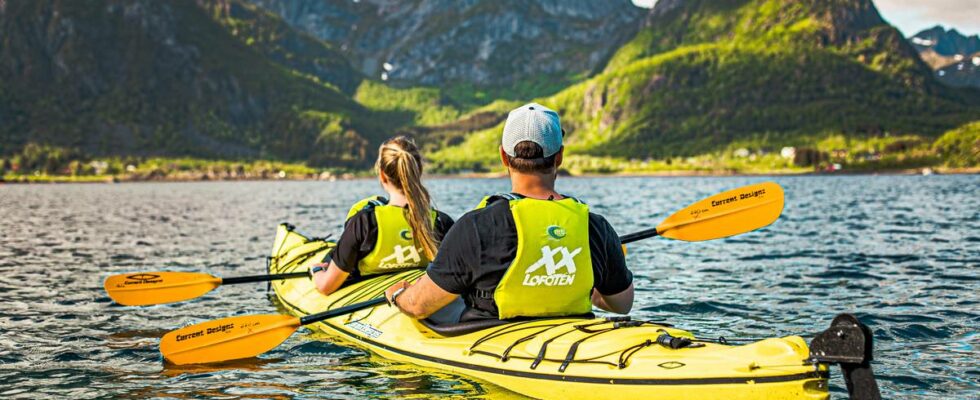Tourism is an industry with significant value creation, but in need of better political governance. In the 1970s, licenses were introduced for the farming industry, in the 1980s the quota system was established for fisheries. Hopefully, the 2020s will be the period in which we established a better structure for the tourism industry. That work should start as soon as possible. Administration and legislative changes are complicated, but with the prospect of continued growth within tourism, and the risk of increasing levels of conflict between the local population and tourism, the time is ripe to discuss some radical measures. There must be different rules for tourists than for permanent residents. It is not a principle we follow today. Demanding that “tourism must take responsibility” is as precise as demanding that “someone” must take responsibility. The challenge is to define who is the travel industry, because this is a fragmented industry. Tourism as an industry is young, and embraces registered companies, but also a significant proportion of individuals. Part of the reason is sharing services such as Airbnb. It is simple and uncomplicated to rent out the cabin, the annex, the car or the house. The local offer for tourists is growing in line with demand. Residential buildings and cabins become investment objects for commercial business. This results in a shortage of housing to live in, increasing price pressure and, not least, growing frustration in the local community. The result is a market that cannot be regulated. An unregulated accommodation market is the main cause of the frustration that is beginning to emerge in Lofoten, Barcelona, Mallorca, Tromsø and many other places. An upper limit should be established on short-term letting, for example 30 days a year. It is enough to make a pleasant contribution to the family economy, but not sufficient for private acquisitions of property to be financed through unregulated letting. In Norway, we have universal rights, and no means of differentiating access to this right. This opens the door for unregulated traffic and camping. It is time for some adjustments to the right to common law: In order for this to apply in its entirety, you must be registered as a resident in Norway. For everyone else, there should be restrictions, which could for example include camping, harvesting and traveling outside designated areas. Motorhomes and caravans should be required to use designated areas. This results in increased value creation and fewer conflicts with the local population. The Norwegian common law was never intended to be an international good, and is a right that we should protect. We cannot allow the common law court to reduce the quality of life for those who live on the site. There should be a requirement for a license to run commercial tourist activities in Norwegian nature. The requirement must include documentation that includes a description of the activity, risk analysis and that the participants are insured. Today, this is an industry without barriers to establishment. Cruise ships are getting bigger and bigger, with more passengers. One possible solution is to set restrictions on the number of passengers measured against the number of residents on the site. This will be an effective measure to avoid excessive visitor pressure at destinations. The major point of appeal is that the municipalities risk earning less for the operation of the port, which is again important for financing the development of the ports. Such a restriction may entail increased costs for other users of the port. In Norway we have tourist fishing. Record seizures are reported every year, and we know that what is seized is only the tip of the iceberg. Companies that offer tourist fishing are exempt from responsibility for limiting the volume taken ashore. It is a practice that cannot continue. Initiatives have already been taken to look at restrictions. We should require a fishing license for sea fishing for everyone who is not resident in Norway. And we should go further. For the export of fish, a requirement is established for documentation from a registered fishing company that documents the species, place of fishing and fishing period. If you have not fished through a registered fishing company, you are also not allowed to take fish out of the country. Fishing tourism in Norway must be about the experience, and not money or a way of financing the trip. The tender routes for ferries and flights have ended up being cheaper, but we have not been able to differentiate between residents living in Norway and visitors. Everyone gets the same price, and permanent residents experience being left behind when the ferry and Widerøe travel on. This is not a development that can continue. Again, there must be room to differentiate between users. Subsidized prices on ferries and tendered flight routes should be reserved for people living in Norway. Designing a new set of regulations that is adapted to future growth is demanding. It will require anchoring at state level. Unfortunately, it is all too often the case that measures are taken after the problem has become unmanageable. Today, we have enough knowledge and experience to identify bottlenecks in the case of continued growth in tourism. It provides a sufficient basis for taking measures. Published 25/07/2024, at 17.04
ttn-69
Sustainable tourism requires new rules – Statement

